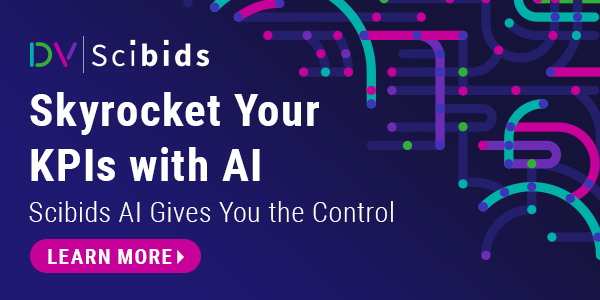In the ever-evolving digital advertising landscape, CPGs face unique challenges in achieving their KPIs. The demand for developing cost-effective media programs that drive a brand’s desired outcomes is daunting.
Legacy optimization systems often struggle to meet the intricate and specific definitions of quality engagement that CPG brands require, a concept we refer to as Quality CPM or “qCPM.”
However, artificial intelligence (AI) is changing how CPG advertisers tackle these challenges.
AI: A game-changer for CPG brands
AI has quickly transformed into a dominant disruptor in the world of advertising. Its role in digital advertising has become increasingly crucial as it opens doors to unexpected and transformative capabilities for marketers.
Beyond simply driving performance, predictive AI is equipping advertisers with new levels of transparency, control and precision in media buying, enabling them to optimize toward their business KPIs. This is especially true for CPGs and has been extensively written about by Scibids’ CEO, Rémi Lemonnier.
Empowering CPG brands: Taking control of programmatic spend
CPG brands must actively control their programmatic spend and define their desired outcomes or KPIs. Relying on generic performance metrics is no longer sufficient. Instead, brands should direct their media buyers to identify the right kind of AI to precisely articulate their unique business goals and quality engagement criteria.
Increasingly, this is being achieved through a qCPM. This shift empowers brands to define their desired outcomes, ensuring that every advertising dollar spent aligns with their specific objectives.
Agencies equipped with advanced AI tools for building custom bidding models can then provide the essential support to make data-driven decisions that respect these custom metrics, optimizing media buying strategies to deliver the results brands need to grow.
In this dynamic environment, the partnership between CPG brands and AI-driven technologies is pivotal for achieving advertising success while controlling programmatic spend and scale.
AI for consumer experience insights
CPG advertisers recognize the urgent need for the real-time analytical power of AI. Traditional manual data analysis is not only time-consuming, but also tends to fall short of providing timely insights that can actively shape campaign strategies. This is where predictive AI empowers CPG brands, ensuring that ad decisioning constantly adapts in real time to consumer behavior and the desired business outcome.
The immediate response to changing dynamics in the market is invaluable, as it allows advertisers to benefit from data-driven decisions while a campaign is live and running. In today’s digital age, it’s crucial for CPG advertisers to nimbly respond to audience behaviors and interactions.
In an era where consumer preferences constantly change, AI eliminates having to wait for post-campaign analysis to identify performance bottlenecks or consumer trends.
With the right AI, control equals power
The newfound control and power that AI offers CPG advertisers in their programmatic buys should serve as a compelling call to action. It’s time to embrace this transformative technology and harness its capabilities for your brand’s benefit.
With AI, you can set and achieve highly specific, quality engagement KPIs that align with your unique business goals. Predictive AI can make data-driven decisions in real time, ensuring your campaigns remain agile and responsive to consumer preferences.
No longer are you constrained by one-size-fits-all strategies. Using AI, your advertising efforts can be finely tuned to resonate with your audience at the right moment. The control, transparency and performance that AI delivers are essential for navigating the complexities of the digital advertising landscape.
















